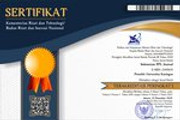THE IMPACT OF TASK-BASED LANGUAGE TEACHING ON LEARNERS’ WRITING SKILLS
Abstract
This article gives an account of an action research project aimed at determining the effect of Task-Based Language Teaching and various writing strategies on public school learners’ writing skills. The study implicated a diagnostic stage, an action stage and an evaluation stage within an Action Research methodology. Initially, at the diagnostic stage, it was detected that the participants had to improve their writing production and reach the levels of competence established by the Common European Framework (CEFR) and The Ministry of National Education (MEN) guidelines. In the following developed phase, six workshops were designed within the framework for Task-Based Learning (Willis & Willis, 2007), including pre-task, task, planning, report, and language focus. Along with this, various writing strategies were used, including brainstorming, listing, questioning, reading pictures, and classifying words. Finally, the evaluation stage revealed that students achieved better results in written production; they increased their vocabulary, reduced the amount of grammar errors, improved the syntax of the language, and became more autonomous and responsible. Basides, students’ confidence in the writing processes also improved. Findings reported that the use of TBLT improved the students’ writing skills. Conclusions and pedagogical implications are presented for teachers, schools and policy makers to incorporate TBLT and writing strategies in the future curriculum development as a means to contribute to the English language methodology.
Full Text:
PDFReferences
Barkaoui, K. (2007). Teaching writing to second language learners: Insights from theory and research. TESL Reporter, 40, 35-48.
Cozby, P., C. & Bates, S., C. (2012). Methods in behavioral research. New York: McGraw-Hill Companies.
Cummings, A. (2001). Learning to write in a second language: Two decades of research. International Journal of English Studies, 1-23.
Ellis, R (2003). The methodology of task-based teaching. Retrieved from https://www.kansai-u.ac.jp/fl/publication/pdf_education/04/5rodellis.pdf.
Harmer, J. (2011a). How to teach English. England: Pearson Education Limited.
Harmer, J. (2011b). The practice of English language. England: Pearson Education Limited.
Manyike, T., V. & Lemmer, E., M (2010). English reading and writing performance of Xitsonga-speaking grade 7 learners in township schools: A case study. University of South Africa.
Ministry of Education. (2006). Estándares Básicos de Competencia. (M. o. Education, Ed.) Retrieved from http://www.colombiaaprende.edu.co/html/mediateca/1607/articles-115375_archivo.pdf.
Mohite, M. (2014). An investigation into the English language writing strategies used by Polish EFL secondary school learners. British Council ELT. London Metropolitan University.
McNiff, J., & Whitehead. J. (2005). Action research for teachers: A practical guide. Madison Avenue: David Fulton Publishers.
Richards, J. C., & Rodgers, T., S. (2001). Aproaches and methods in language teaching (3rd ed.). Cambridge: Cambridge University Press.
Sokolik, M. (2003). Writing. In D. Nunan (Eds), Practical English language teaching (PELT), (pp. 87-88). New York: McGrawhill.
Willis, D., & Willis, J. (2007). Doing task-based teaching: Handbooks for language teachers. Oxford: Oxford University Press.
DOI: https://doi.org/10.25134/ieflj.v5i2.1820
Refbacks
- There are currently no refbacks.

This work is licensed under a Creative Commons Attribution-ShareAlike 4.0 International License.

